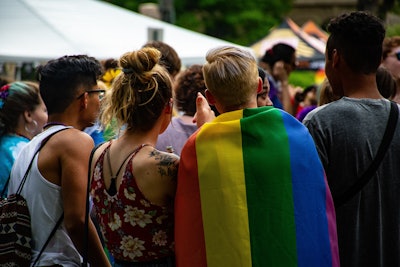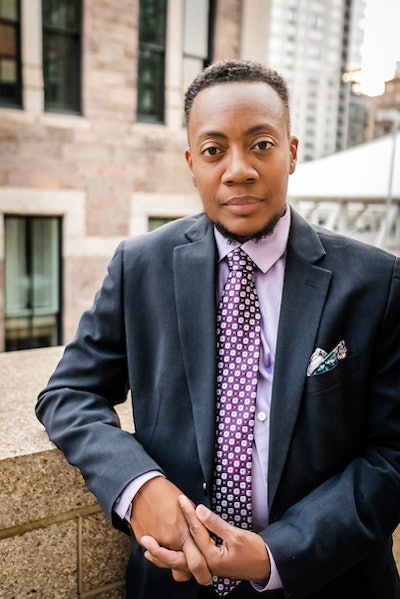The time has come to shore up educational environments as places of support, safety, and affirmation for LGBTQ+ students, particularly trans-identifying youth, according to a statement co-written by educational scholars, co-signed by educators across the field from preschool to postsecondary, under the organization titled Support LGBTQ Education.

The statement encourages improvement of working conditions for educators to combat the teacher shortage and a commitment to keeping public educational spaces public, including schools, libraries and community centers. Access to information should not “depend on the money you make,” said Dr. D-L Stewart, professor of higher education at the University of Denver and one of the co-authors of the statement.
The onus of this statement falls to institutions of higher education, said Stewart, as not only possessors of some of the biggest voices in the field of education, but also as trainers of the future generation of teachers. This statement, he added, not only acknowledges how anti-LGBTQ+ bills are contributing to the further marginalization of the queer population, but it also serves as recognition of the power of education to address injustice. In just two months, 2023 has seen over 120 bills introduced across the country to restrict LGBTQ+ individuals, particularly targeting trans individuals’ freedom of gender expression and access to life-saving health care for those experiencing gender dysphoria. The American Civil Liberties Union (ACLU), a nonprofit organization working for over 100 years to preserve the right to liberty for all, is currently tracking 321 anti-LGBTQ+ bills in the U.S.
The joint statement was originally written in response to the November 19, 2022 Club Q shooting in Colorado Springs, CO, which targeted members of the LGBTQ+ community and claimed the lives of five people. The statement was drafted by seven education scholars in both the U.S. and Canada. It received over 2,400 signatures of support in under one week.
“The horrific violence at Club Q unfolded against a backdrop of rising anti-LGBTQ+ sentiment in the U.S., particularly in the nation’s public schools and libraries,” the statement reads. “As scholars in the field of education, we are profoundly concerned by these recent attacks on LGBTQ+ youth and educators, which place them—and all LGBTQ+ people—at risk of harm.”
 Dr. D-L Stewart, professor of higher education at the University of Denver and one of the co-authors of the statement.
Dr. D-L Stewart, professor of higher education at the University of Denver and one of the co-authors of the statement.
In 2022, at least 32 transgender and gender-nonconforming individuals were murdered in the U.S., according to the Human Rights Campaign, an advocacy group for the LGBTQ+ community. Fifty-nine percent of those killed were Black, and 81% identified as trans women.
“I believe there’s an attempt to drive trans people out of public life, and by extension, the rest of the queer community. We’re talking about rendering people invisible,” said Stewart. “The consequence will be pushing people back into danger and increasing the continued spate of murders of trans women in this country. We already see this rising tide of violence. It’s only going to become worse.”
The statement encourages educational institutions to commit to evidence-based practices and policies that support LGBTQ+ youth and recognize their new status of increased vulnerability. Anti-trans and anti-LGBTQ+ policies often cite their own research as self-justification, said Stewart, which makes the high-quality research done at institutions of higher education all the more important.
“[Proponents of these policies] do rely on what they call research to support their views, and in doing so, there’s this really nefarious undermining of what research is,” said Stewart. “This is re-enforcing the idea that research can be shaped merely to reflect the individual’s point of view.”
Guarding public education as a safe space for all, and creating and uplifting quality research, is crucial to the mission of higher education, said Stewart.
“[The authors of this statement] love education, the power of what education can do and has done—we refuse to let it die,” said Stewart. “It’s a matter of inspiring critical hope that we can make a difference.”
Liann Herder can be reached at [email protected].



















